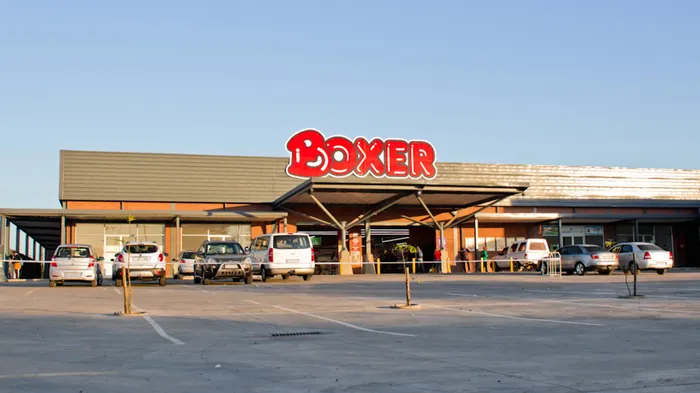
As South Africa’s fastest-growing discount supermarket chain, Boxer acknowledged the emerging challenges ahead.
Image: Supplied
In Boxer’s first annual report since its listing on the JSE, the retailer revealed its ambitious plans for the 2026 financial year.
The company aims to open 60 new stores (25 Superstores and 35 liquor stores), invest R1.2 billion in capital expenditure, and further expand and enhance the infrastructure that supports its growth and efficiency. As South Africa’s fastest-growing discount supermarket chain, Boxer acknowledged the emerging challenges ahead, including low price inflation, rising cost inflation, annual listing-related expenses, and increased competition within the market.
Board chairperson James Formby reflected on the milestone, stating, "The listing of Boxer Retail Limited on the JSE and A2X in November 2024 was a defining moment for the Boxer Group. It marked a point of pride, purpose, and the culmination of decades of hard work, consistent execution, and strong performance in a highly competitive market."
While the primary motivation for Boxer’s listing was to meet the recapitalisation needs of its largest shareholder, Pick n Pay Stores, Formby noted that the process also provided Boxer with a rare opportunity to emerge as a stand-alone entity, gain visibility in the retail industry, access capital markets, and accelerate its growth strategy.
CEO Marek Masojada highlighted the company’s strong momentum as it entered 2025, saying that Boxer had maintained its focus on business priorities despite the demands of preparing for its initial public offering (IPO).
"Our first set of results demonstrates a business that is staying true to its strategy, fulfilling its promises, and, most importantly, delivering on what matters most to our customers," Masojada said.
Boxer posted consistent market share gains throughout the year, which contributed to strong sales growth and trading profit. The retailer exceeded IPO expectations, delivering a market-leading return on invested capital.
The company expanded its footprint by a net 48 stores during the year, including converting eight Pick n Pay supermarkets and seven liquor stores to Boxer, bringing its total to 525 locations across South Africa and Eswatini.
This expansion resulted in the creation of 2 900 new jobs, significantly contributing to economic inclusion. While the store rollout slightly missed the annual target of 60 stores due to delays in securing liquor licences, Masojada remained confident about Boxer’s future, saying, "We have the infrastructure, financial capacity, and experience to deliver on our expansion plans in FY26 and beyond."
Chief Finance Officer David Wayne reported a 13.2% increase in turnover, reaching R42.3 billion. On a comparable 52-week basis, turnover rose by 10.4%, with like-for-like sales growth of 5.6%. "This solid performance reflects consistent market share gains, supported by our disciplined execution of the customer value strategy," Wayne said.
However, he noted that sales growth moderated in the second half of the year, from 12% in the first half (7.7% like-for-like) to 9% in the second half (3.7% like-for-like), as the business cycled against an exceptionally strong comparative base from the second half of 2024 (18.6% sales growth, 11.6% like-for-like).
Wayne expects turnover growth to continue in the low teens in 2026, although this forecast accounts for lower food inflation and the potential for delays in liquor licence approvals, which could affect the timing of some store openings.
Looking ahead, Boxer anticipates more challenging economic conditions in the short to medium term. Global trade tensions and shifting tariff regimes, particularly those imposed by the United States, could drive up input costs and create significant uncertainty. The company also noted that the unpredictability of these global shifts is making supply chain planning increasingly difficult and could disrupt international logistics and shipping ports. On the local front, increases in water, electricity, and fuel costs will further squeeze already tight household budgets, especially for vulnerable communities.
Despite these macroeconomic challenges, Boxer is bracing for a continued rise in demand for low-priced staples and essential groceries, while facing intensified price-based competition across the sector. This trend, Boxer noted, is expected to persist in the coming months, adding further pressure to the retail landscape.
BUSINESS REPORT